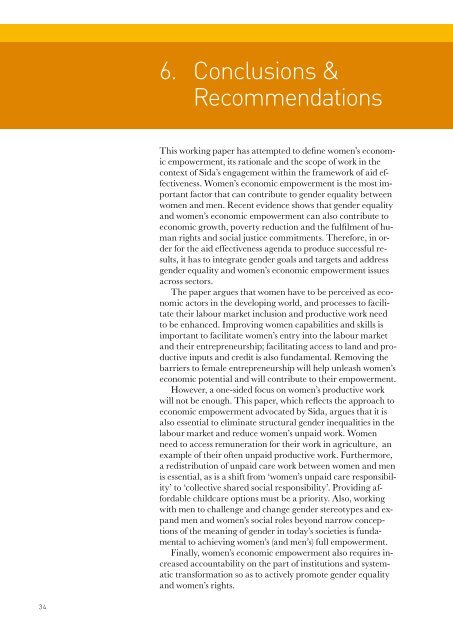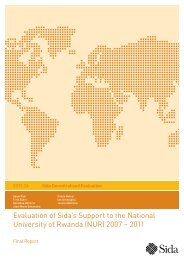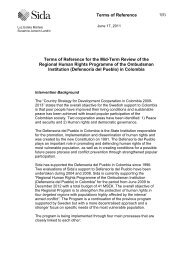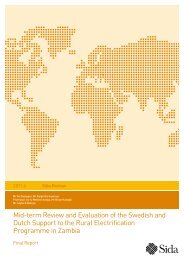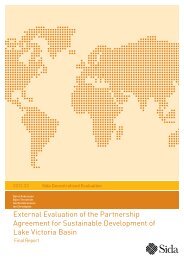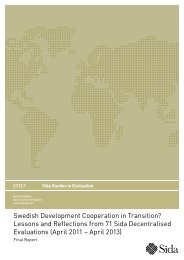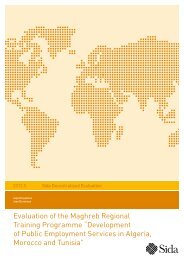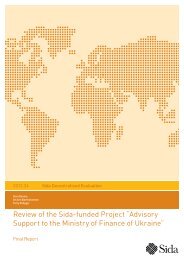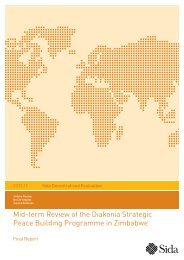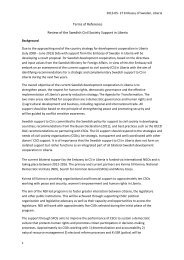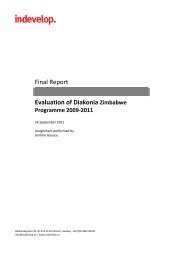Women's Economic Empowerment: Scope for Sida's Engagement
Women's Economic Empowerment: Scope for Sida's Engagement
Women's Economic Empowerment: Scope for Sida's Engagement
Create successful ePaper yourself
Turn your PDF publications into a flip-book with our unique Google optimized e-Paper software.
6. Conclusions &RecommendationsThis working paper has attempted to define women’s economicempowerment, its rationale and the scope of work in thecontext of Sida’s engagement within the framework of aid effectiveness.Women’s economic empowerment is the most importantfactor that can contribute to gender equality betweenwomen and men. Recent evidence shows that gender equalityand women’s economic empowerment can also contribute toeconomic growth, poverty reduction and the fulfilment of humanrights and social justice commitments. There<strong>for</strong>e, in order<strong>for</strong> the aid effectiveness agenda to produce successful results,it has to integrate gender goals and targets and addressgender equality and women’s economic empowerment issuesacross sectors.The paper argues that women have to be perceived as economicactors in the developing world, and processes to facilitatetheir labour market inclusion and productive work needto be enhanced. Improving women capabilities and skills isimportant to facilitate women’s entry into the labour marketand their entrepreneurship; facilitating access to land and productiveinputs and credit is also fundamental. Removing thebarriers to female entrepreneurship will help unleash women’seconomic potential and will contribute to their empowerment.However, a one-sided focus on women’s productive workwill not be enough. This paper, which reflects the approach toeconomic empowerment advocated by Sida, argues that it isalso essential to eliminate structural gender inequalities in thelabour market and reduce women’s unpaid work. Womenneed to access remuneration <strong>for</strong> their work in agriculture, anexample of their often unpaid productive work. Furthermore,a redistribution of unpaid care work between women and menis essential, as is a shift from ‘women’s unpaid care responsibility’to ‘collective shared social responsibility’. Providing af<strong>for</strong>dablechildcare options must be a priority. Also, workingwith men to challenge and change gender stereotypes and expandmen and women’s social roles beyond narrow conceptionsof the meaning of gender in today’s societies is fundamentalto achieving women’s (and men’s) full empowerment.Finally, women’s economic empowerment also requires increasedaccountability on the part of institutions and systematictrans<strong>for</strong>mation so as to actively promote gender equalityand women’s rights.34


